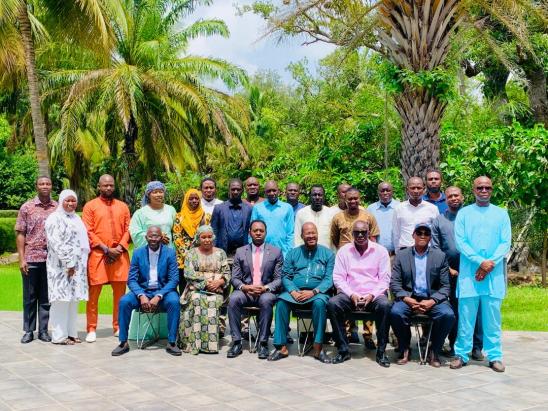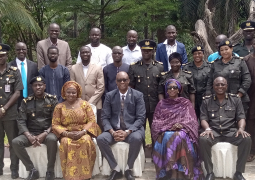
These forms have been meticulously crafted in alignment with the Public Procurement Act of 2022, marking a pivotal step in the country’s ongoing procurement reform efforts.
The retreat brought together senior government officials and procurement experts from various institutions to assess the forms and ensure they meet legal standards, promote transparency, and reflect modern procurement practices.
Ebrima Sanyang, Director of Procurement Policy and Operations at GPPA, emphasised the importance of continuous reform in his opening remarks.
“Over the past two decades, we have made significant strides in modernizing our procurement landscape,” Sanyang said. “However, reforms are not a one-time event. They are a continuous process.”
He noted that GPPA currently operates under 26 reform initiatives that guide procurement procedures across all government entities. Sanyang stressed the need for alignment with legal frameworks and standardisation to ensure efficiency and compliance.
Foday M. Jaiteh, Director General of GPPA, echoed the call for modernisation, highlighting the evolving nature of procurement in the public sector.
“Procurement is not just about buying goods and services,” Jaiteh said. “It’s about identifying opportunities to drive value in the public sector through strategic sourcing and resource management.”
Jaiteh expressed concern over the outdated nature of the current procurement templates, which have been in use for over 24 years. He reaffirmed GPPA’s commitment to leveraging technology and strategic sourcing to optimise processes and deliver greater value to economic operators.
Also speaking at the event, Yahya Drammeh, Deputy Permanent Secretary at the Ministry of Finance and Economic Affairs, commended the initiative as a major milestone in The Gambia’s efforts to enhance transparency and accountability in public procurement.
“This is a significant milestone in Gambia’s ongoing efforts to enhance transparency, efficiency, and accountability in the public procurement sector,” he said.
He urged participants to collaborate openly and develop practical, legally compliant tools that reflect the spirit of reform and modernisation.



